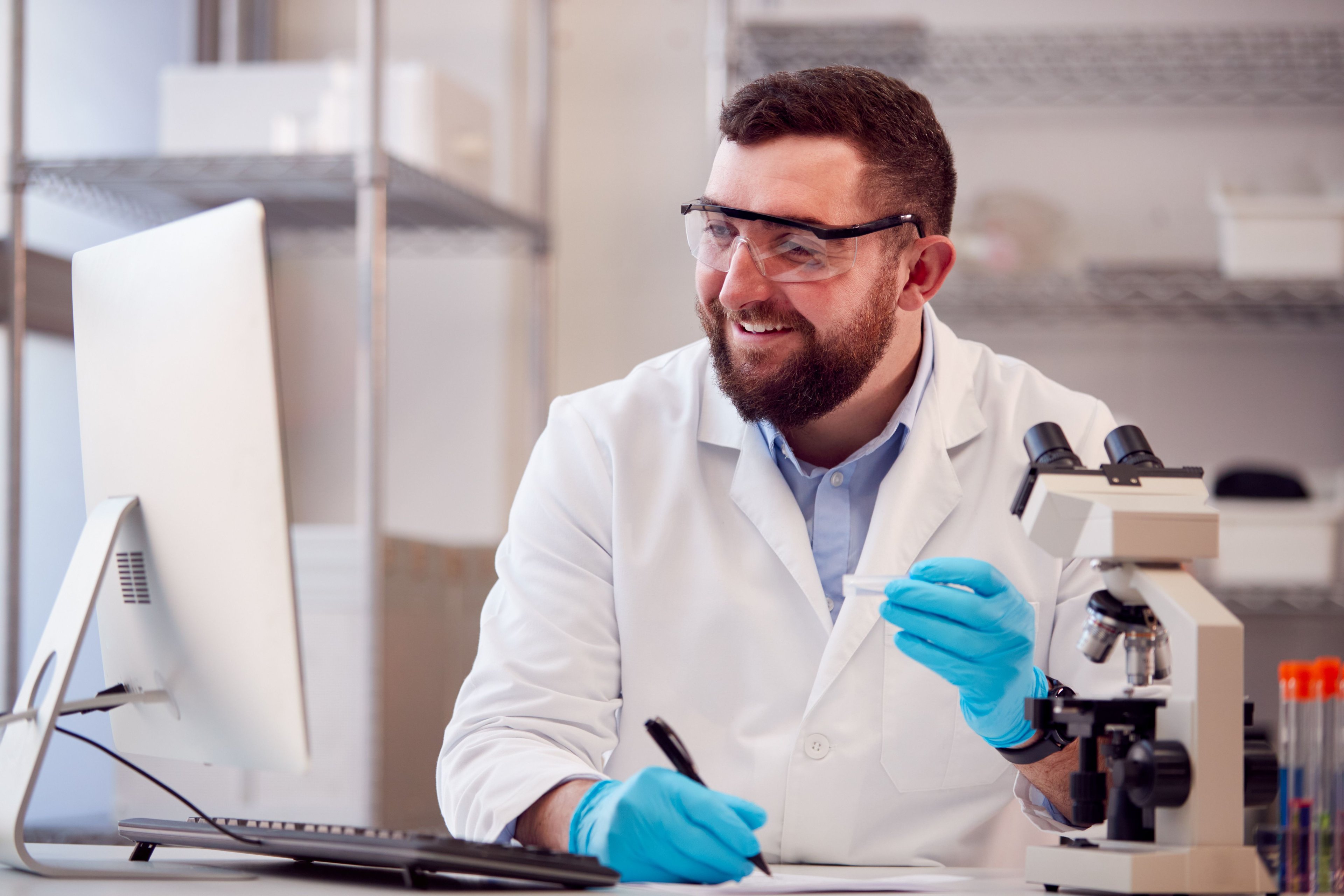The past six months have been rough for investors and the management team at Exelixis (EXEL +5.75%). The stock sank nearly 40% from its high north of $24 in April to its recent range of $15. Today, however, sentiment appears to be shifting in Exelixis' favor.
While the stock looked weak, the business remains strong. The latest earnings report irked some investors, since the net product revenue came in just under analyst expectations. Some fear that competition from big pharma competitors Pfizer (PFE 0.59%) and Merck (MRK 0.25%) might be creating tough headwinds for Cabometyx (Cabo), Exelixis' leading drug.

Source: Getty Images.
Cabo leads the way
Let's review the numbers. Exelixis earned $271.7 million in revenues in the third quarter, with the Cabo franchise responsible for 70%, or $191.8 million. That represents revenue growth of 17.7% from the prior year. Not too shabby. An additional $79.9 million came from collaboration revenues. In particular, the European company Ipsen Pharma paid Exelixis a $50 million milestone because it attained $250 million in net sales of Cabo over four consecutive quarters. Exelixis granted Ipsen exclusive rights to Cabo outside of the U.S., Canada, and Japan in 2016.
Here's another positive sign. For the first time ever, global sales of Cabo exceeded $1 billion over four consecutive quarters. While approved in 49 countries, it is currently only commercially available in 34. That means further revenues when Cabo launches in those additional 15 countries. Exelixis earns a healthy 22% royalty on sales by Ipsen.
Additional drug approvals should spur sales
In January 2019, Cabo received its third approval from the U.S. Food and Drug Administration. Cabo was initially approved as a treatment for thyroid and kidney cancers, and the new approval added hepatocellular carcinoma, the most common form of liver cancer. It will take some time to ramp up sales in the U.S. for a large indication like liver cancer.
Cabo scored more approvals in October and November in Canada. Regulators approved the drug for use in kidney cancer patients that have not received any prior drugs. Cabo had been approved to treat kidney cancers but only after patients received a certain type of prior therapy. In November, liver cancer joined the list of cancers to be treated with Cabo. Broadly speaking, expanding the pool of eligible patients should translate into revenue growth.
Positive phase 3 data announced
Beyond Cabo, investors can look to Exelixis' collaborations for additional revenue. A 2006 pact with Japanese pharma Daiichi Sankyo has only just begun to bear fruit. The licensed drug esaxerenone gained approval in Japan in January as a treatment for hypertension, which triggered a $20 million milestone payment to Exelixis.
On Nov. 7, Daiichi announced positive phase 3 pivotal trial results with esaxerenone as a treatment for diabetic nephropathy. Highlighted during the American Society of Nephrology's Kidney Week annual meeting, the results confirmed the activity and safety seen in a previous phase 3 trial. Daiichi claims that roughly half of all type 2 diabetic patients suffer from nephropathy, and it is the leading cause of dialysis in Japan.
Exelixis entered into another partnership back in 2006. Genentech, part of Roche (RHHBY +2.85%), stepped up to develop cobimetinib in combination with one of its own drugs for advanced melanomas with specific mutations. The drug is approved and on the market in the U.S., Europe, and some other countries. The year-to-date revenues of nearly $8 million are nice but don't really move the needle.
Exelixis expands the pipeline
Investors should keep an eye on the emerging pipeline. Exelixis entered into deals in May and July with Iconic Therapeutics and Aurigene Discovery Technologies, respectively.
The Iconic option arrangement gives Exelixis the ability to take over development of ICON-2, Iconic's lead antibody-drug conjugate or ADC, following achievement of certain milestones. ADCs combine potent anticancer payloads attached to antibodies specifically designed to home in on a specific cancer target. Seattle Genetics (SGEN +0.00%) and Genentech brought the first ADCs to market, proving this smart-bomb approach works. Immunomedics (IMMU +0.00%) should file for approval of its ADC before the year-end.
The broad Aurigene transaction provides options to acquire up to six different programs focused on cancer and inflammation. Details on the programs have been scant to date. Investors should note that Exelixis' outlay for these deals is quite low. This prudent approach allows Exelixis to delay incurring more substantial development expenses until more information is known about the compounds.
Exelixis has a lot of good things going for it: growing global revenues, expanding drug approvals, more than $1 billion in cash on the balance sheet, and an interesting, albeit early, pipeline. I first liked Exelixis' stock when it dipped below $20. Now in the $15 to 16 range, it appears even more tempting. Lastly, a cash-flow-positive oncology company could be an attractive acquisition target for a bigger pharma company.









